The story of artist Edith Lake Wilkinson, a painter who was committed to an asylum in 1924 and never heard from again. All her worldly possessions were packed into trunks and shipped to a relative in West Virginia where they sat in an attic for 40 years. Edith's great-niece, Emmy Award winning writer and director Jane Anderson, grew up surrounded by Edith's paintings, thanks to her mother who had gone poking through that dusty attic and rescued Edith's work. The film follows Jane in her decades-long journey to find the answers to the mystery of Edith's buried life, return the work to Provincetown and have Edith's contributions recognized by the larger art world.
Related Movies
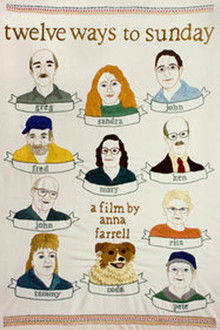
Twelve Ways to Sunday (2010)
A tight-knit community fixing up motorcycles, dishing up meals at the local diner, and canning fruit preserves. The people of Allegany County, New York, have always sustained through the good and bad times.

Cut Piece (1965)
Filmed at New York’s Carnegie Hall, Cut Piece documents one of Yoko Ono’s most powerful conceptual pieces. Performed by the artist herself, Ono sits motionless on the stage after inviting the audience to come up and cut away her clothing in a denouement of the reciprocity between victim and assailant.
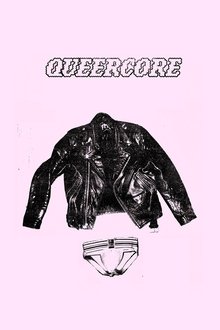
QUEERCORE (a punk-u-mentary) (1997)
The urban on-line dictionary defines queercore as “Gay-themed, underground, independent music; usually punk rock (Team Dresch, Pansy Division, The Butchies, The Need, etc.)”. See for yourself.

I Don't Know (1971)
A truly major work, I Don’t Know observes the relationship between a lesbian and a transgender person who prefers to be identified somewhere in between male and female, in an expression of personal ambiguity suggested by the film’s title. This nonfiction film – an unusual, partly staged work of semi-verité – is the first of Spheeris’s films to fully embrace what would become her characteristic documentary style: probing, intimate, uncompromising. Preserved by the Academy Film Archive in 2014.
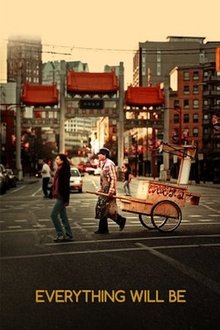
Everything Will Be (2014)
Sundance award-winning director Julia Kwan’s documentary Everything Will Be captures the subtle nuances of a culturally diverse neighbourhood—Vancouver’s once thriving Chinatown—in the midst of transformation. The community’s oldest and newest members offer their intimate perspectives on the shifting landscape as they reflect on change, memory and legacy. Night and day, a neon sign that reads "EVERYTHING IS GOING TO BE ALRIGHT" looms over Chinatown. Everything is going to be alright, indeed, but the big question is for whom?
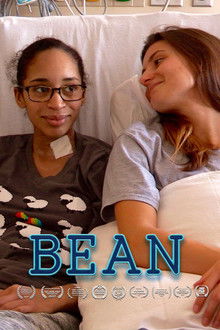
BEAN (2017)
Alana and Lori were just two LGBT 20-somethings looking for love on Tinder when a casual right swipe made a match that would bind them together forever. Within a few weeks of meeting, Lori learned that Alana suffers from Lupus and has been waiting on the kidney transplant list for years. The state of New York, where Alana lives, has the lowest number of organ donors in the country, and because of her complex medical background, her chances of finding a donor match were incredibly slim. Against all odds, Lori found that she was a candidate for donation and decided to give Alana the ultimate gift. If the transplant is a success, Alana will triple her life expectancy and be freed from nightly dialysis. But if it fails, Lori will go through risky surgery and lose a healthy organ in vain. BEAN is an emotional medical journey for two families that tests the true limits of love and sacrifice.
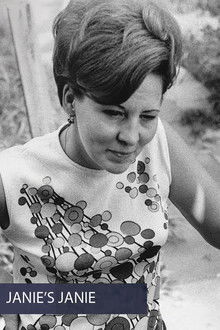
Janie's Janie (1971)
The Newsreel collective’s JANIE’S JANIE breaks with the group’s usual format for a more personal approach, following a woman’s journey to self-determination after years of mental and physical abuse; or, as Janie says, “First I was my father’s Janie, then I was my Charlie’s Janie, now I’m Janie’s Janie."
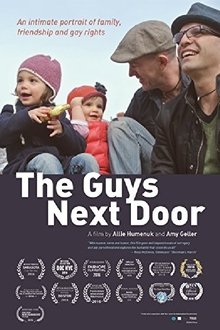
The Guys Next Door (2016)
An intimate portrait of a real Modern Family: Meet Erik and Sandro, a gay couple with daughters birthed by their friend Rachel who's married with three teenagers of her own.

KCBT (2015)
KCBT explores the shifting urban landscape and rapid economic growth of Hanoi, Vietnam through stenciled demolition ads that both visibly mark the entire city and internally mark its residents.

Renoir and the Girl with a Blue Ribbon (2019)
This documentary follows three parallel stories. First, that of the masterpiece, The Little Girl with the Blue Ribbon, this melancholic Renoir work with the "musical face" described by Henri Michaux. The painting was constantly tossed around, shelved by its patrons, looted by the Nazis, found by the Monument Men, recovered by the family, sold to a controversial collector, before finally arriving at the Kunsthaus Zurich. We also discover the painter's biography, and the eventful life of his model, Irene Cahen d'Anvers. Born into the Jewish upper middle class, this free and divorced woman long disowned the painting and left it to her daughter, who was murdered at Auschwitz. Discover the tumultuous journey of this painting, its model, Irene Cahen d'Anvers, and its connection to the dark hours of the Nazi regime.

The Corporation (2003)
Since the late 18th century American legal decision that the business corporation organizational model is legally a person, it has become a dominant economic, political and social force around the globe. This film takes an in-depth psychological examination of the organization model through various case studies. What the study illustrates is that in the its behaviour, this type of "person" typically acts like a dangerously destructive psychopath without conscience. Furthermore, we see the profound threat this psychopath has for our world and our future, but also how the people with courage, intelligence and determination can do to stop it.
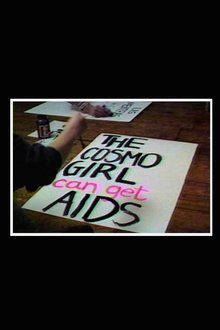
Doctors, Liars, and Women: AIDS Activists Say No to Cosmo (1988)
Outraged by the controversial January, 1988 article in Cosmopolitan magazine, the women in the AIDS Coalition to Unleash Power, (Act Up, New York), organized the first AIDS demonstration focused on women. Doctors, Liars and Women:AIDS Activists Say No To Cosmo not only documents the efforts of the Women's Committee to organize this protest, it also serves as a how-to-guide for direct action.
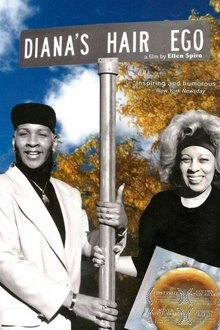
DiAna's Hair Ego: AIDS Info Up Front (1990)
A documentary film about AIDS and one unconventional woman's efforts to educate her small, Southern community. DiAna DiAna is a local hairdresser who transformed her beauty parlor into a center for AIDS and safe sex information.
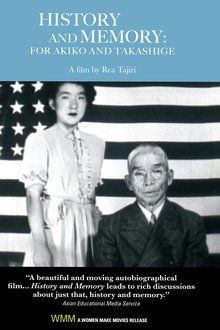
History and Memory: For Akiko and Takashige (1991)
This film is a poetic composition of recorded history and non-recorded memory. Filmmaker Rea Tajiri’s family was among the 120,000 Japanese and Japanese Americans who were imprisoned in internment camps after the attack on Pearl Harbor. And like so many who were in the camps, Tajiri’s family wrapped their memories of that experience in a shroud of silence and forgetting. This film raises questions about collective history – questions that prompt Tajiri to daringly re-imagine and re-create what has been stolen and what has been lost.

Closeness to the Land (2022)
In 2020, just as the pandemic was beginning, Gazala purchased land in western Ohio, on which sits a disused school building. This site allowed her to explore her complex relationship with “the land.” As the daughter of displaced indigenous Palestinians, she attempts to form a proxy bond with the earth, on ground that was stolen from the displaced indigenous Shawnee people. Closeness to the Land is video footage of hand-painted text signs that translate the word الأرض (ard) into six English words, displayed performatively in multiple locations to capture the now-invisible nature of indigenous culture in Ohio. These signs were installed on the old schoolhouse in early 2021.
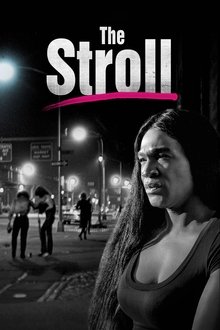
The Stroll (2023)
The history of New York’s Meatpacking District, told from the perspective of transgender sex workers who lived and worked there. Filmmaker Kristen Lovell, who walked “The Stroll” for a decade, reunites her community to recount the violence, policing, homelessness, and gentrification they overcame to build a movement for transgender rights.

King Coal (2023)
The cultural roots of coal continue to permeate the rituals of daily life in Appalachia even as its economic power wanes. The journey of a coal miner’s daughter exploring the region’s dreams and myths, untangling the pain and beauty, as her community sits on the brink of massive change.
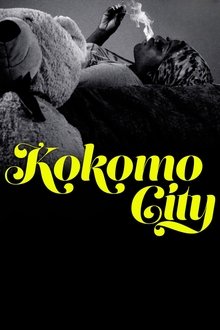
Kokomo City (2023)
Four Black transgender sex workers in Atlanta and New York City break down the walls of their profession.
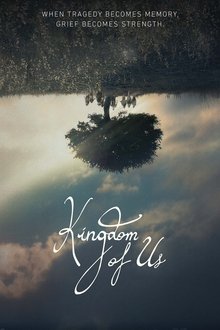
Kingdom of Us (2017)
How does a traumatic event shape a family? How do you sift through the memories to find hidden clues and unlock a collective grief? Kingdom of Us takes a look at a mother and her seven children, whose father's suicide left them in financial ruin. Through home movies and raw moments, the Shanks family travels the rocky road towards hope.